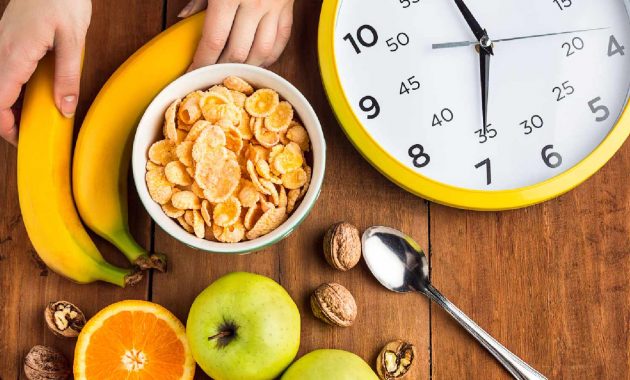Intermittent fasting may help you with weight loss. But not eating for a period of time each day or week may affect your menstruation. Check out the connection between intermittent fasting and menstruation.
Intermittent fasting is the practice of significantly reducing intake of food or abstaining from it for a certain period of time every day. It is known for being effective in weight loss. But the benefit comes with side effects, and one of them may be connected to your reproductive health. It may affect some of your hormones, leading to irregular periods and low energy levels. Here’s what to know about how intermittent fasting may affect your menstrual cycle.
What is intermittent fasting?
Intermittent fasting or IF is a practice that involves regular periods of eating and fasting. The eating pattern refers to regular periods with no or very low intake of calories. This type of fasting usually consists of a daily fast for about 16 hours, or fasting for 24 hours every alternate day. It is considered to be quite effective in weight loss. Intermittent fasting showed promise as a treatment for obesity, as per research published in the Canadian Family Physician journal in 2020.

How does intermittent fasting affect periods and reproduction health?
Intermittent fasting may have an impact on the menstrual cycle, as it can affect the hypothalamus, as per a research published in Thyroid: official journal of the American Thyroid Association in 2008. Hypothalamus is part of the brain that is responsible for regulating hormones like estrogen crucial to menstruation.
Another research published in Plos One suggested that intermittent fasting may affect reproductive hormones.
Intermittent fasting can impact menstrual cycles and overall reproductive health in several ways, though individual responses may vary, says obstetrician and gynaecologist Dr Deepa Dewan. Here’s how IF might affect periods:
Also Read

1. Effect on leptin hormone
Leptin, a hormone produced by fat cells, helps in regulating appetite and energy balance. Intermittent fasting can affect leptin levels, which may influence reproductive hormones. Low leptin levels can disrupt the release of gonadotropin-releasing hormone (GnRH), which in turn affects the production of luteinizing hormone (LH) and follicle-stimulating hormone (FSH), both essential for ovulation and maintaining regular menstrual cycles. This hormonal disruption can lead to irregular periods or amenorrhea (absence of menstruation), potentially affecting fertility, explains the expert.
2. Impact on insulin and cortisol
Insulin regulates blood sugar and plays a role in reproductive health. Intermittent fasting can improve insulin sensitivity, which may have an affect on reproductive hormones, says the expert. Significant changes in insulin levels could disrupt menstrual cycle. On the other hand, cortisol is a stress hormone that can affect reproductive hormones. Intermittent fasting can increase cortisol levels, especially if the fasting regimen is stressful or leads to energy deficits. Elevated cortisol levels from fasting-induced stress may potentially leading to menstrual irregularities.
3. Effects on weight loss
Extreme caloric restriction may lead to hormonal imbalances, resulting in irregular periods or amenorrhea (absence of menstruation). Also, women who experience substantial weight loss may have disrupted menstrual cycles, says Dr Dewan.
But short-term intermittent fasting may not have significant adverse effects on menstruation and fertility, particularly when it does not lead to severe caloric restriction or nutritional deficiencies. The key is balance and ensuring that nutritional needs are met during eating periods, says the expert.

Should women avoid intermittent fasting?
Intermittent fasting during or before or after menstruation is a personal choice and can depend on how an individual’s body responds to fasting and their specific health needs. Here are some considerations:
1. Individual variability
Women’s responses to intermittent fasting vary. Some may find that it is manageable, while others may experience discomfort, especially if it is done during periods. If you feel weak, fatigued, adjust or pause fasting.
2. Energy and nutritional needs
Some women may experience increased energy needs or appetite, especially during periods. Intermittent fasting might exacerbate symptoms such as fatigue, mood swings, or cramping during periods if energy and nutritional needs are not met. Ensuring adequate intake of nutrients and hydration is crucial, and intermittent fasting might limit nutrient intake, which can affect overall well-being and menstrual health.
Intermittent fasting can be beneficial, but make sure that it supports rather than compromises your health. Here are some strategies to practice it safely –
- Ensure adequate hydration by drinking plenty of water throughout the fasting period. Hydration helps maintain bodily functions and can reduce hunger and fatigue, says the expert.
- Consider beverages with electrolytes (like unsweetened coconut water or electrolyte solutions) to maintain balanced electrolyte levels, especially during extended fasts.
- During eating periods, focus on nutrient-dense foods that provide a balance of protein, healthy fats, and complex carbohydrates. This helps to keep energy levels stable and supports overall health.
- Minimise intake of ultra-processed foods and sugary snacks, which can lead to energy crashes and poor nutritional balance.
- Focus on how your body responds to this kind of fasting. If you experience symptoms like dizziness, fatigue, or severe hunger, it may indicate the need to adjust your fasting plan.
- Begin with shorter periods of fasting then gradually increase the duration after your body adapts to it. This can help minimise potential side effects and make the transition smoother.
- Allow your body to rest and recover while you are fasting. So, avoid strenuous physical activity, especially if you feel weak.
Intermittent fasting may help to lose weight, but it may also affect your period and reproductive health. Stay hydrated and eat nutrient-dense foods during eating periods to support your reproductive health. Most of all, consult your healthcare provider before starting intermittent fasting, especially if you have concerns related to your menstrual cycle or reproductive health.
#Intermittent #fasting #affects #menstruation #connection
